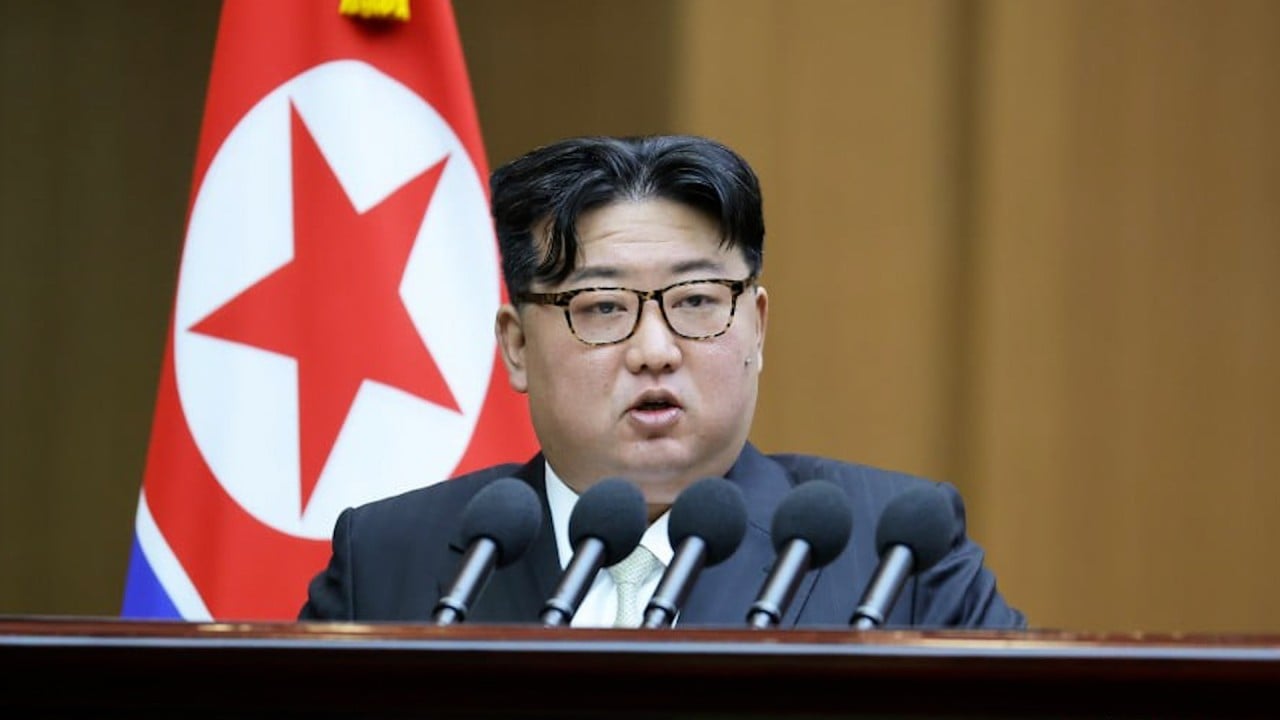That same evening, Aso attended a dinner reception with Senator Bill Hagerty, who served as US ambassador to Japan under Trump, the Asahi newspaper reported, before travelling to New York the following day with the aim of meeting Trump. Aso reportedly said that his visit was meant to be “a sign that I wanted to meet him”.
Japan’s record arms spending will require ‘controversial’ taxes, welfare cuts
Japan’s record arms spending will require ‘controversial’ taxes, welfare cuts
Trump was in New York on that day to attend a court session in a civil fraud trial in which he is a defendant but due to his busy schedule, he was unable to meet Aso.
“Abe went to great lengths to manage the relationship with Trump and to manage his ego,” said Ben Ascione, an assistant professor of international relations at Tokyo’s Waseda University. “And even Abe’s critics had acknowledged that he did a very good job in mitigating some of the worst possible outcomes that could have come out of the Trump presidency,” Ascione told This Week In Asia.

Immediately after Trump won the 2016 election but crucially before he had been sworn in, Abe made a stopover in New York before an Apec meeting in South America to meet the president-in-waiting.
This was a significant breach of protocol, Ascione said, with then-President Barack Obama “irritated” at Abe’s actions and largely ignoring the Japanese leader at the Apec conference. When Abe was finally able to meet with Obama, he quickly offered to pay a visit to Pearl Harbor to pay his respects to the US war dead as a way of making amends for his meeting with Trump.
“This just goes to show the lengths that Abe was willing to go to to manage Trump’s ego and limit the worst-case threats to the Japan-US alliance,” Ascione said.
Trade and security concerns
A second Trump presidency is of concern to Japan in several areas, but two stand out in particular: trade and security.
“Trump was tariff-happy in his first administration, putting tariffs on imports from China but also on long-standing US allies, such as Japan and Australia,” said Ascione. For Japan, the biggest concerns would revolve around its auto industry.
“There are also worries about international trade regimes and the rules-based world order on trade, with the US under Trump vetoing judges nominated for the World Trade Organization appellate body.”
Of even greater concern is Tokyo’s critical security alliance with Washington.
“When Abe went to New York in November 2016, his concern was that Trump would say that the islands were no longer covered by the US-Japan security treaty” and that US forces would not help Japan to protect the territory from an attack by China, Ascione said.
“So Abe got in early, massaged Trump’s ego and made sure that the islands would still be covered under Article Five of the treaty,” he added. Article Five states that Japan and the US would act to “meet the common danger” in the event of an “armed attack” against either country within Japanese territories.
Russia’s Putin ‘giving Japan two fingers’ with pledged trip to disputed islands
Russia’s Putin ‘giving Japan two fingers’ with pledged trip to disputed islands
Kishida or his replacement is likely to attempt a similar approach to ensure US support on the issue, according to Ascione.
Tokyo is similarly concerned that Trump could repeat the threat he made during his first administration to withdraw US troops from Japan unless Tokyo covered a greater share of the costs of their presence. If Tokyo was not willing to do that, then it should develop nuclear weapons, Trump added.
While Abe, Aso and other right-leaning Japanese politicians would have few qualms about developing or deploying nuclear weapons, they are aware that the decision to do so would be long and complicated.
Both Japan and South Korea have less faith in Kim’s word than Trump appears to have. There are fears that a second Trump administration would be open to an agreement with North Korea that would limit its number of weapons that could strike the US mainland but do nothing to stop the development of missiles capable of hitting targets in South Korea or Japan.
Can ‘safe’ minister Yoko Kamikawa become new Japan PM as Kishida’s star wanes?
Can ‘safe’ minister Yoko Kamikawa become new Japan PM as Kishida’s star wanes?
“Trump forging any sort of alliance with North Korea is Japan’s nightmare scenario,” said Toshimitsu Shigemura, a professor of politics and international relations at Waseda University.
“No Japanese leader will have any influence over Trump when it comes to what he wants to do about North Korea, which makes Tokyo very afraid.”
Shigemura believes there is a good possibility that Trump would withdraw US military and financial support for Ukraine, assisting Russia’s efforts to occupy the country. This would indicate Washington might not come to the help of Japan, Taiwan and the Philippines if they were threatened by China, according to Shigemura.
“For Japan, there appears to be very little that would be good in a second Trump presidency,” Shigemura said.
“They will not say it, of course, but the government here is very much hoping that Biden will remain as president after the elections because Trump is not a deep thinker when it comes to democracy.”


